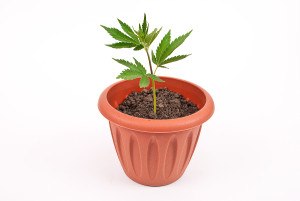

Legalizing recreational pot in North Dakota could cut the number of people who are registered to use the drug as medicine by at least 80%, due to access to bigger quantities and more varied products, a health official said last week.
Supporters of legalizing recreational marijuana in North Dakota succeeded last month in bringing the matter to a public vote in November by submitting more than the required 15,582 valid petition signatures to get it on the ballot.
 The state has issued more than 8,200 identification cards to qualifying patients since North Dakota voters approved medical marijuana in 2016.
The state has issued more than 8,200 identification cards to qualifying patients since North Dakota voters approved medical marijuana in 2016.
North Dakota’s approved medical marijuana forms are dried leaves and flowers, concentrates, tinctures, capsules, topicals and transdermal patches. Medical pot dispensaries are located in Fargo, Bismarck, Devils Lake, Fargo, Jamestown, Grand Forks, Minot and Williston. Edibles were part of the original initiative but the state Legislature removed them from the list, fearing they could get in the hands of children.
The initiative on the ballot in November would allow people 21 and older to legally use marijuana at home as well as possess and cultivate restricted amounts of cannabis. The state could register up to seven marijuana manufacturing businesses and 18 dispensaries. Edibles would be allowed.
Medical Marijuana Division Director Jason Wahl said thousands of patients holding medical pot cards likely will opt to purchase from recreational sources if the measure is approved.
Medical marijuana users, for example, may only purchase 2.5 ounces of cannabis flower in a 30-day period. If approved by voters, recreational marijuana users could potentially – illegally – purchase at least that amount in a day, as “none of that is tracked,” Wahl said.
Medical pot is taxed at the state’s 5% sales tax rate, plus local taxes. Recreational marijuana would be taxed at the same rate.
Wahl told a legislative panel Monday that North Dakota could expect $1.3 million in revenue in the next two-year budget cycle from application and registration fees from manufacturing businesses and dispensaries, which would cover the cost of state oversight.
Wahl said the state Tax Department has not calculated the amount that could come from recreational pot sales because the product cost and level of sales is unknown at present.